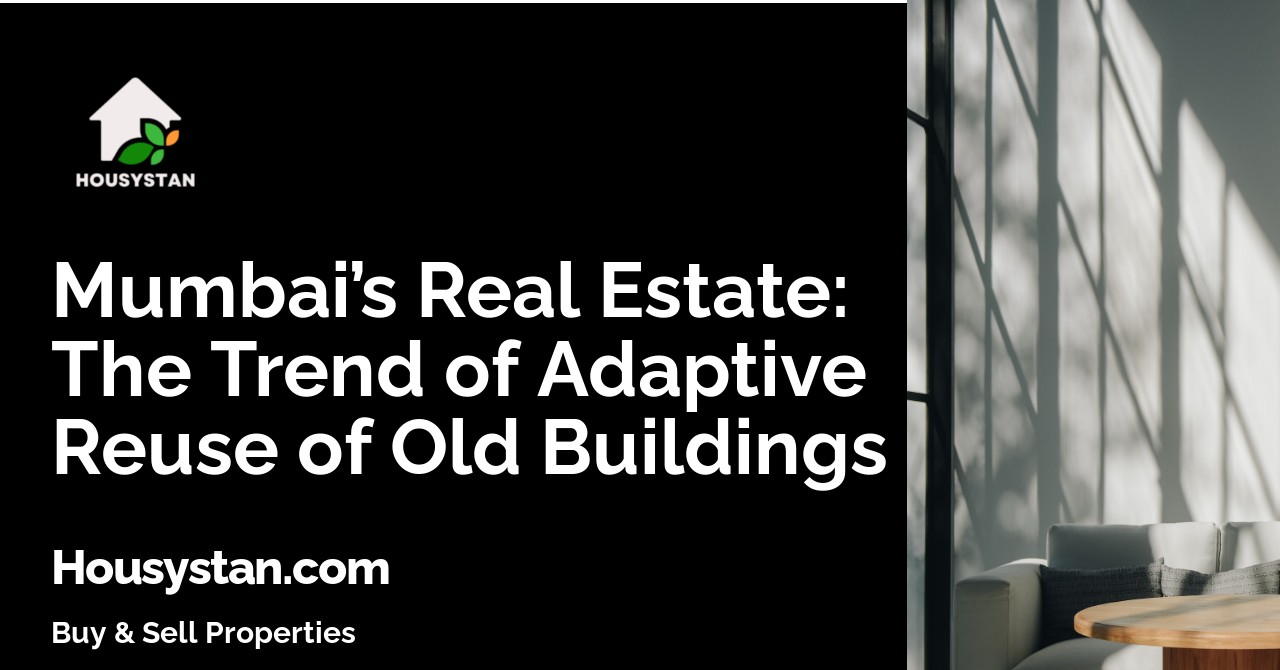Mumbai’s Real Estate: The Trend of Adaptive Reuse of Old Buildings
Read latest blogs and articles from Housystan

The Information mentioned here was last updated on:
29/1/2026Mumbai’s Real Estate: The Trend of Adaptive Reuse of Old Buildings
Mumbai, often referred to as the financial capital of India, is witnessing a remarkable transformation in its real estate landscape. The city’s limited land availability and ever-increasing population have prompted property developers and urban planners to embrace the adaptive reuse of old buildings. This innovative approach not only preserves the city’s rich heritage but also meets the modern needs of residents and businesses. As a result, adaptive reuse has become a key trend shaping Mumbai’s property market, offering sustainable solutions while maintaining the city’s unique character.
Adaptive reuse involves converting historic structures, dilapidated warehouses, and aging industrial sites into vibrant commercial complexes, chic offices, boutique hotels, and luxury residences. This trend is gaining traction across prime locations such as South Mumbai, Bandra, and Lower Parel, where space is at a premium. By revitalizing neglected structures, developers are unlocking prime real estate opportunities without the environmental impact of new construction. These projects often feature a harmonious blend of classic architecture and contemporary amenities, appealing to discerning buyers and tenants seeking distinctive spaces.
- Verified Tenants/Buyers
- Unlimited Property Listing
- Zero subscription/charges fee
One of the primary advantages of adaptive reuse in Mumbai is its contribution to sustainability. Reusing existing structures reduces construction waste, conserves resources, and minimizes the carbon footprint associated with demolition and rebuilding. Additionally, these projects help retain the city’s architectural legacy, offering residents a tangible connection to Mumbai’s storied past. Neighborhoods benefit from increased economic activity as new businesses, cafes, and cultural venues emerge within repurposed buildings, enhancing the local community and boosting property values.
For investors and homebuyers, adaptive reuse developments present attractive opportunities. These properties often command premium prices due to their unique features, central locations, and historical significance. Furthermore, the government’s support for heritage conservation and urban renewal initiatives encourages more stakeholders to participate in such ventures. As demand for eco-friendly and culturally significant spaces continues to rise, the adaptive reuse of old buildings is set to redefine Mumbai’s real estate market, ensuring the city evolves while preserving its distinctive identity.